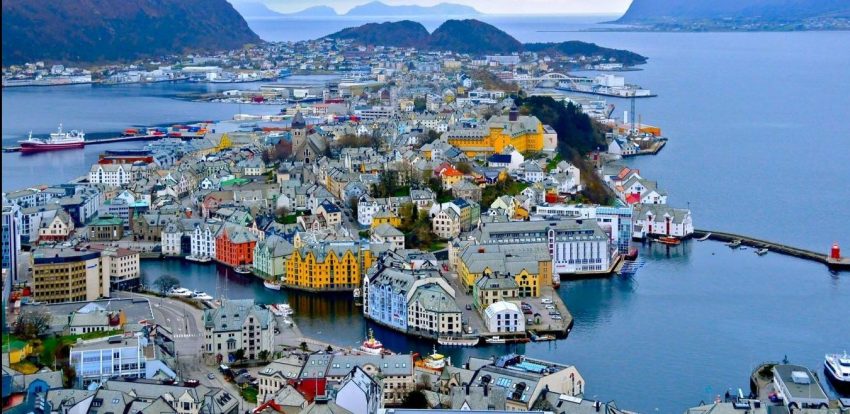
- info@apollo.edu.np / apollointleducation@gmail.com
- 0977-1-4245770 / 4245771
- Book an Appointment


Norway is the northernmost country in Europe and includes a great variety of natural scenery. The span from the lowlands in the southeast to the spectacular fjords and high mountains and coastline in the west and north is very striking. If you enjoy hiking and huge outdoor experiences, this is a fantastic place to be. Are you an ambitious student seeking to improve your career possibilities while having the time of your life? Then Norway is worth checking out. Despite being a small country Norwegian universities and university colleges deliver quality education which also international exchange and degree seeking students benefit from. Studying in Norway will improve your career possibilities, both at home and abroad. The World Happiness Report, just released on March 20, World Happiness Day, has some great news for Norway: it’s the happiest place in the world. Norway, along with its fellow Scandinavian countries scores high marks on caring, freedom, generosity, honesty, health, income, and good governance. The World Happiness Report explains that happiness is social and personal—and implies a sense of freedom, specifically from corruption.
Norway is one of the five Nordic nations which lie within the northern stretches of the European continent. It is bordered to the east by Sweden, Finland and Russia; to the west by the Norwegian Sea and the Atlantic Ocean; to the north by the Barents Sea, and to the south by the North Sea. In total area, Norway measures 386,958 square kilometer. The country is long and narrow, with more than 30% of the land covered by forests, many rivers and lakes. Nearly half of the country is given over to mountain ranges.
Norway is one of the world’s richest countries in per capita terms. It has an important stake in promoting a liberal environment for foreign trade. Its large shipping fleet is one of the most modern among maritime nations. Metals, pulp and paper products, chemicals, shipbuilding, and fishing are the most significant traditional industries.
Norway is the world’s sixth-largest oil exporter and second-largest gas exporter , providing much of western Europe’s crude oil and gas requirements. Norwegian oil and gas exports accounted for approximately 50% of total exports. In addition, offshore exploration and production have stimulated onshore economic activities. Over 27% of state revenues are generated from the petroleum industry; taxes and direct ownership ensure high revenues. Foreign companies, including many American ones, participate actively in the petroleum sector. The oil industry directly employs roughly 40,000 people in core extraction activities. Over 250,000 are employed in petroleum-related activities.
It makes sense that the happiest place on earth has happy international students. From top-notch universities to metropolitan city life, Norway has a strong appeal to international students. In 2016, it ranked #1 in international student satisfaction. Why are students so happy it’s because of Courses in English, Variety of courses, programs, fields of study, Friendly locals, vibrant art scenes, Rich music, Phenomenal beauty, Local culture and cuisine, Ease of transportation, Low crime rate.
Norway’s public universities are tuition-free. While certain programs at these universities might charge fees, most general courses of study do not. Private universities, of course, charge.
Norway is stunning. The midnight sun, The Northern lights, jagged coastline. Deep fjords, dense forests, Snow-capped Mountains, Arctic foxes, Kittiwakes, Polar bears. Norway experiences extremes in all four seasons, resulting in extreme condition and extreme splendor. While you’re studying here, it’s worth the investment of a decent camera… and maybe a pair of Nordic skis.
Hailed as one of the best in the world, Norway’s social system reaches every Norwegian and even some transplants. It offers welfare services for all; education, public healthcare, unemployment support, parental leave, and childcare. While these systems are not immediate for new residents and require some time and effort, the rewards can—and will—pay off. Keep in mind: your taxes and cost of living are high for a reason.
Most everyone in Norway speaks English, especially at the universities. This applies not just to Norway, but to Scandinavia in general. English is essential in Norway—it carries cultural currency. English and the Scandinavian languages come from similar roots, so it’s not a far cry to learn English if you already speak Norwegian. Norwegian syntax and English syntax are also similar in their ‘subject-verb-object’ constructions. Learning English is also a priority for Norwegian primary school students
Capital: Oslo
Currency: Norwegian krone
Official languages: Norwegian, Bokmål, Nynorsk, Saami, North
If you are going to use a passage of Lorem Ipsum, you need to be sure there isn't anything embarrassing hidden in the middle of text